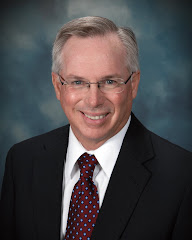School Finance Proposal in the House
Supporters of the House budget plan claim that K-12 education is not being cut, because funding from state sources is the same as in the current year’s budget. But that is a fiction. The truth is, by not replacing the $172 million of stimulus money that is in the current budget but disappears in the FY 2011 budget, we would in fact be cutting K-12 education dramatically. To claim otherwise is to resort to tortured and dubious semantics.
It should be evident to everyone by now that we cannot pass a responsible balanced budget this year without some kind of tax increase. The Appropriations Committee worked dozens of budget reports in the process of preparing the budget, and I can report to you that only rarely did the committee have the stomach to make any kind of substantial cuts to those budgets. That tells me that the consensus of the committee was that we could not responsibly cut any further.
So what does the House plan do? It cuts K-12 education. Yeah, that’s the ticket. They’re the biggest part of the budget so the authors of the House plan say let’s cut them. But the cut comes in the form of a mandate to school boards to raise their own taxes. That’s interesting. At the state level we have any number of tax bases we can access… cigarettes, liquor, sales, etc. But the school districts have only one tax base… property. The House budget plan is telling the people of the state of Kansas that the way out of this fiscal crisis is to raise property taxes. Never mind that surveys tell us that the people’s first choice if some tax must be raised is tobacco tax and then liquor tax. Never mind that property tax is the very last tax they would choose for us to raise. Property tax raises $4 billion for state and local government in Kansas, and sales and income tax only raise $3 billion each. And yet the authors of this plan think it best to raise property tax some more. What kind of twisted logic is that? Is it really the best choice? Is this wise tax policy? Or is it merely the quickest way out of town?
And think about this. Do undocumented workers pay any property tax? Of course not. Do they buy beer or liquor or cigarettes? Of course they do. Do they buy groceries and other retail items? Well yeah. So why do they get a free pass? Why would we raise the only tax that they are able to avoid completely?
In an effort to advance the illusion that there would be no tax increase, the makers of this plan are willing to adopt an unsound school finance plan and distort state tax policy in a very unhealthy way. I believe we must not do that. We must not abdicate our responsibility. Instead those of us in the legislature must honestly admit that any of the responsible options before us will involve a tax increase this year. And once we have come to that unfortunate but inevitable conclusion we must then move to a productive discussion of what form of tax increase is best for all Kansans and what form of tax increase will be least damaging to the state’s ability to recover from the recession.
First Adjournment Coming Soon
The last week of March is traditionally the final week of the legislative session before first adjournment. The legislature typically meets for a 90-day session, first convening in early January and adjourning in late March or early April. The final week of that period is usually dominated by the process of adopting a budget for the next fiscal year. The legislature then reconvenes in late April or early May for a week-long wrap-up session to conduct any last-minute business before final adjournment for the year.
This year will be different. The ongoing fiscal crisis has made crafting a budget extremely difficult this time around, and it appears that neither the House nor the Senate will have passed or even debated a budget before we leave town this week. The prevailing opinion seems to be to put off that decision until the latest state revenue estimate is available in mid-April. So it now appears that we will adjourn early, possibly as early as Tuesday evening. That will leave more legislative days available to use during the wrap-up session in early May. Those of us who are corn farmers as well as legislators will be hoping for enough dry weather to get the corn in before we are called back to Topeka on April 28!
Unemployment Rate Drops in February
The National Bureau of Labor Statistics reports that the unemployment rate in Kansas declined to 6.8% in February. This is certainly good news, and represents a significant drop from the recent high of 7.8% unemployment last July. Kansas Secretary of Labor Jim Garner issued the following comment: "While it is still too early to say the Kansas labor market is out of the woods, I am encouraged by a number of promising signs in the February Labor Report. There were considerable job gains in manufacturing for the first time in 16 months – gains that go beyond what we typically see from January to February. Additionally, job loss is slowing in nearly all industries, there was a drop in initial claims numbers and several other major industries had slight over-the-month job gains. These are encouraging signs that we’ll be watching closely over the coming months."





No comments:
Post a Comment